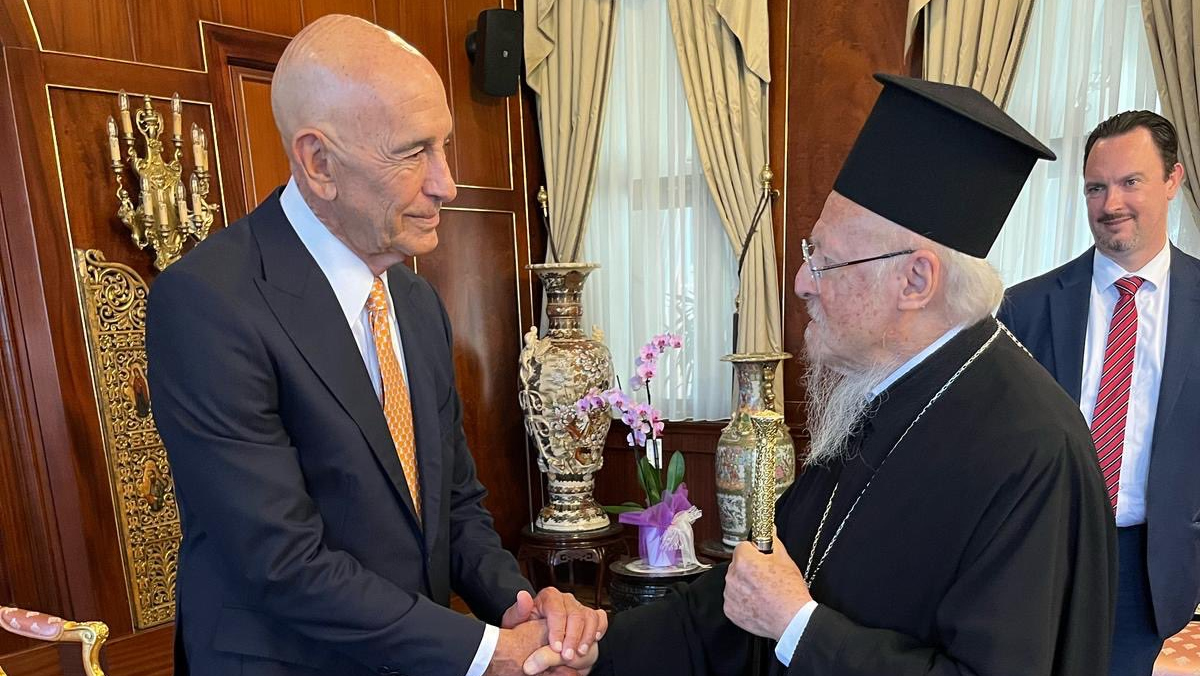
The Fener Greek Patriarchate in Istanbul operates as a public institution within the framework established by the 1923 Lausanne Peacy Treaty, is bound by the laws of Türkiye, and is subordinate to Turkish secular authorities. The administrator of this institution, the Fener Greek Patriarch, is required to be a Turkish citizen and is issued a diplomatic passport by Türkiye, signifying that the government considers the Patriarch to be an important individual representing public interests of the country. In line with these factors, the Patriarchate is tasked with serving the religious needs of the Orthodox Greek (Rum in Turkish) citizens of Türkiye and is required to abstain from all political activities both at home and abroad. However, the Patriarchate has had a problematic relationship with the Turkish government in this regard since the founding of the Republic of Türkiye, because the Patriarchate insists on using the “ecumenical” title[1], something that the Turkish government has persistently rejected to recognize due to this title’s ramifications in terms of state sovereignty.
Relying on its traditional status of primus inter pares (first among equals) in the Eastern Orthodox world, the Patriarchate has for a long time sought to enhance its position by using the ecumenical title. Were the Turkish government to acquiesce to such a plan and were the autocephalous Orthodox churches agree to the Fener Greek Patriarchate’s supremacy, the Patriarchate could eventually seek to establish itself as the Eastern Orthodox equivalent of the Roman Catholic Church and become a state within a state in Türkiye (emulating the Vatican within Italy).
Orthodox churches are steeped in nationalism by their very nature[2], and the legacy of the dissolution of the Ottoman State (Empire) triggered by nationalist trends had a profound effect on the mindset of the Ankara Government that established the Republic of Türkiye in 1923 following the successful conclusion of the Turkish National Struggle (1919-1922). In the aftermath of a destructive war with Greece that ravaged Anatolia and considering the Fener Greek Patriarchate’s strong connections to Greek nationalism, the Ankara Government engaged in arduous negotiations during the Lausanne Peace Conference (1922-1923) with Greece and the Allied Powers of the First World War to have the Patriarchate relocated to Mount Athos in Greece. The Ankara Government calculated that the Patriarchate’s presence in Türkiye would serve as an instrument for Greek and Western interventionism and sought to avoid this threat (which had historical precedents) to its sovereignty through negotiations. However, Greece and its Allied Power backers were so adamant about the Patriarchate remaining in Türkiye that negations ground to a halt, which jeopardized the whole Lausanne Peace Conference process. In the end, the Ankara Government and its counterparts came to a verbal “gentlemen’s agreement”[3] whereby the Patriarchate would remain in Türkiye but would be required to be a subject of civil administration and to abstain from all political activities.
These historical factors have framed the relationship between Türkiye and the Fener Greek Patriarchate ever since. Unsatisfied with being confined within Türkiye and aspiring for the recognition of the primus inter pares status and beyond, the Patriarchate has used a combination of Christian solidarity and backing from Greece and the predominantly Chrisitan Western countries to push its ecumenical agenda. In response to this, Türkiye has chosen to stonewall the Patriarchate’s political maneuvers, which has meant that the Patriarchate has played its own game with no results. There are both domestic and foreign policy reasons for Türkiye strategically ignoring the claimed international status of the Patriarchate. Domestically, Türkiye has wished to avoid alienating its citizens of Greek origin that could be triggered by engaging in open confrontation with the Patriarchate. Internationally, Türkiye has sought to avoid offending the Eastern Orthodox world and (being a part of the Western camp during the Cold War) was mindful of the Patriarchate being historically used as a foreign policy tool by the West against the officially atheist Soviet Union.
The Fener Greek Patriarchate’s use as a foreign policy tool has had lasting impact throughout the Cold War and present times in the context of the ongoing Ukraine-Russia war. It is a widely known and reported fact[4] that the West (primarily the United States) has employed the Patriarchate as an intelligence and psychological asset against both the Soviet Union and subsequently Russia to undermine the Moscow Patriarchate’s position in the Eastern Orthodox world and thereby reduce Russia’s cultural influence during the Cold War and later in post-Soviet countries. It is therefore no wonder that Russia has always viewed the Fener Greek Patriarchate with suspicion and has treated the Patriarchate as an instrument of the West in the international arena.
In recent times, this has resulted in dramatic developments such as Ukraine’s efforts to wean itself off Russian influence, which in turn has placed Türkiye in an uncomfortable position between Ukraine, Russia, and the United States. Following Russia’s persistent aggressions against Ukraine’s territorial integrity starting in 2014, Ukraine (with the tacit backing of the United States) sought to establish a unified, independent, and national Orthodox church of Ukraine free from the Moscow Patriarchate’s control and thus applied to the Fener Greek Patriarchate to be granted such a right. Despite the Fener Greek Patriarchate having no clearly defined authority in this regard and strong opposition from the Moscow Patriarchate, the Fener Greek Patriarchate proceeded with “granting” this right to Ukraine. The Moscow Patriarchate retaliated by severing its ties with the Fener Greek Patriarchate. This means that the largest church (or one of the largest based on how one assesses church jurisdiction) in Eastern Orthodoxy has broken its communion with the Fener Greek Patriarchate.
Following the trend of American interventionism in Eastern Orthodox affairs, during an official visit to the Fener Greek Patriarch Bartholomew in last August, the United States Ambassador to Ankara Tom Barrack openly referred to the Patriarch as “ecumenical”.[5] This has naturally caused considerable public reactions and displeasure in Türkiye. Whether it was his personal convictions[6] that motivated him to use such a controversial title or whether he received specific instructions to do so, Ambassador Barrack’s statements were highly inappropriate in terms of international diplomatic etiquette.
For now, Türkiye continues to strategically ignore the Fener Greek Patriarchate’s maneuvers, while the Patriarchate continues to remain aloof from the realities of being a public institution in Türkiye. This aloofness is well-entrenched and manifests itself in interesting ways. For example, until recently, the Patriarchate did not even have a Turkish-language official website, with Greek and English as the only two language options.[7] Today, the Patriarchate’s website does offer Turkish language as an option, but only in a limited scope in the sense that many parts of the website do not have Turkish content. Even more inappropriately, the Patriarchate openly displays the “ecumenical” title in the header section of its website.
Despite the provocative actions taken by the Patriarchate, the Turkish government nevertheless refrains from displaying harsh responses to both the said religious institution and the Orthodox Greek community in Türkiye that it represents. This is in stark contrast to Greece’s treatment of the Muslim Turkish minority in Western Thrace. Right under the nose of the European Union and despite the Turkish minority having never acted in a way that could pose a challenge to Greece’s state sovereignty, the Greek government has for decades now engaged in a systemic campaign of harassment and marginalization against the institutions of the Turkish minority.[8] This well-documented systemic campaign, which has been the subject of multiple European Court of Human Rights judgements against Greece, is designed to slowly and methodically erase centuries-long Turkish presence and identity in Greece. This situation clearly demonstrates troubling double standards whereby Greece continues to be treated as the Christian golden child of the West despite being the serial rule breaker in the EU, while Türkiye continues to be treated as the Muslim “other” despite taking measured responses against sustained provocations.
*Picture: US Ambassador to Ankara Tom Barrack with Fener Greek Patriarch Bartholomew during their meeting in Istanbul on 11 August 2025. - Source: Eualive.net
[1] Mehmet Oğuzhan Tulun, “Orthodox Council to Meet After 1200 Years”, Center for Eurasian Studies (AVİM), Commentary No: 2014/48, 9 April 2014, https://avim.org.tr/en/Yorum/ORTHODOX-COUNCIL-TO-MEET-AFTER-1200-YEARS ; Mehmet Oğuzhan Tulun, “Is Ecumenism Being Disrupted in the Christian World?”, Center for Eurasian Studies (AVİM), Analysis No: 2018/26, 24 September 2018, https://avim.org.tr/en/Analiz/IS-ECUMENISM-BEING-DISRUPTED-IN-THE-CHRISTIAN-WORLD
[2] Gözde Kılıç Yaşın, “Designing the Geography of Religion in the New World Order: Divisions in Orthodoxy”, Center for Eurasian Studies (AVİM), Analysis No: 2022/15, 10 June 2022, https://avim.org.tr/en/Analiz/DESIGNING-THE-GEOGRAPHY-OF-RELIGION-IN-THE-NEW-WORLD-ORDER-DIVISIONS-IN-ORTHODOXY ; Gözde Kılıç Yaşın, “The Legal Status of the Fener Greek Patriarchate”, Center for Eurasian Studies (AVİM), Analysis No: 2022/12, 19 October 2022, https://avim.org.tr/en/Analiz/THE-LEGAL-STATUS-OF-THE-FENER-GREEK-PATRIARCHATE ; Gözde Kılıç Yaşın, “Fener Rum Patrikhanesinin Statü İlerletme Çabası Ve Yarattığı Düğümler”, Avrasya İncelemeleri Merkezi (AVİM), Analiz No: 2022/31, 24 Kasım 2022, https://avim.org.tr/tr/Analiz/FENER-RUM-PATRIKHANESININ-STATU-ILERLETME-CABASI-VE-YARATTIGI-DUGUMLER ; Gözde Kılıç Yaşın, “Ulusal Güvenlik Ve Dini Özgürlükler Çatışmasında Fener Rum Patrikhanesi”, Avrasya İncelemeleri Merkezi (AVİM), Analiz No: 2023/5, 20 Ocak 2023, https://avim.org.tr/tr/Analiz/ULUSAL-GUVENLIK-VE-DINI-OZGURLUKLER-CATISMASINDA-FENER-RUM-PATRIKHANESI
[3] Tulun, “Is Ecumenism Being Disrupted in the Christian World?”.
[4] Michael Warren Davis, “The CIA’s Man in Constantinople”, The American Conservative, 23 April 2024, https://www.theamericanconservative.com/the-cias-man-in-constantinople/
[5] “US ambassador sparks scandal in Turkey over Patriarch Bartholomew’s title”, EUalive, 14 August 2025, https://eualive.net/us-ambassador-sparks-scandal-in-turkey-over-patriarch-bartholomews-title/
[6] Reza Talebi, “Thomas Barrack: Mastermind of America’s Great Game in the Middle East”, Daktilo1984, 30 July 2025, https://daktilo1984.com/d84intelligence/thomas-barrack-mastermind-of-americas-great-game-in-the-middle-east/
[7] Official website of the Fener Greek Patriarchate, https://ec-patr.org/en/ , accessed on 3 September 2025.
[8] Teoman Ertuğrul Tulun, “Greek Policies Towards Turkish Minority Schools Risk Repeating History”, Center for Eurasian Studies (AVİM), Analysis No: 2025/19, 19 August 2025, https://avim.org.tr/en/Analiz/GREEK-POLICIES-TOWARDS-TURKISH-MINORITY-SCHOOLS-RISK-REPEATING-HISTORY ; Teoman Ertuğrul Tulun, “Religious Assimilation Policies in Greece: Pressure on Turkish Muftis as a Continuation of Minority Rights Violations”, Center for Eurasian Studies (AVİM), Commentary No: 2025/38, 21 August 2025, https://avim.org.tr/en/Yorum/RELIGIOUS-ASSIMILATION-POLICIES-IN-GREECE-PRESSURE-ON-TURKISH-MUFTIS-AS-A-CONTINUATION-OF-MINORITY-RIGHTS-VIOLATIONS
© 2009-2025 Center for Eurasian Studies (AVİM) All Rights Reserved
No comments yet.
-
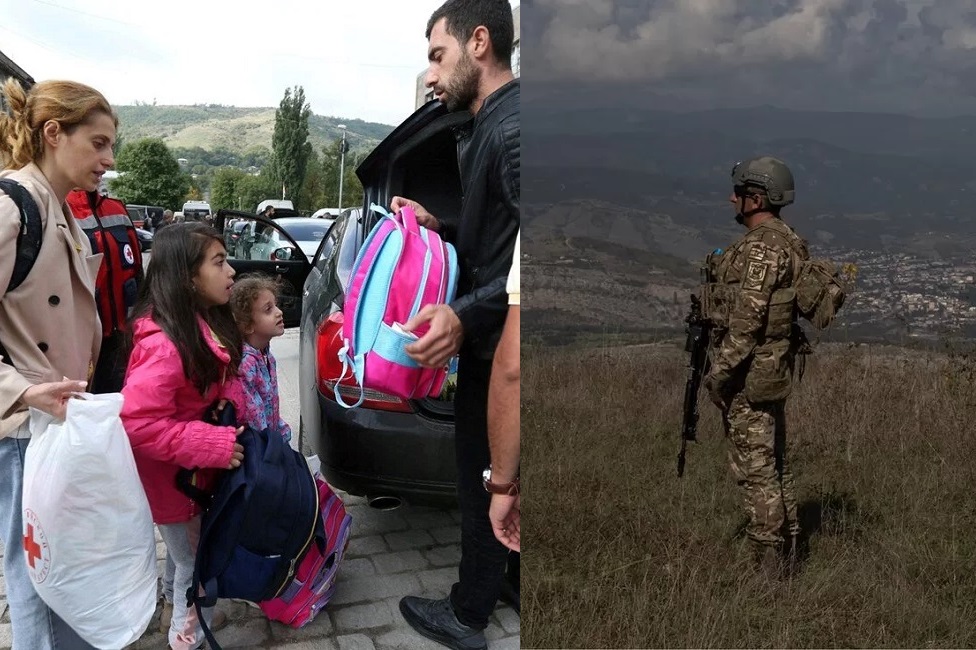 THE BATTLE TO CONTROL THE NARRATIVE OVER KARABAKH: ARMENIAN CIVILIAN SAFETY VS. AZERBAIJANI STATE SOVEREIGNTY
THE BATTLE TO CONTROL THE NARRATIVE OVER KARABAKH: ARMENIAN CIVILIAN SAFETY VS. AZERBAIJANI STATE SOVEREIGNTY
Mehmet Oğuzhan TULUN 06.10.2023 -
 GENOCIDE ALLEGATIONS, PROPAGANDA MOVIES, AND A 90-MILLION-DOLLAR FIASCO
GENOCIDE ALLEGATIONS, PROPAGANDA MOVIES, AND A 90-MILLION-DOLLAR FIASCO
Mehmet Oğuzhan TULUN 14.07.2020 -
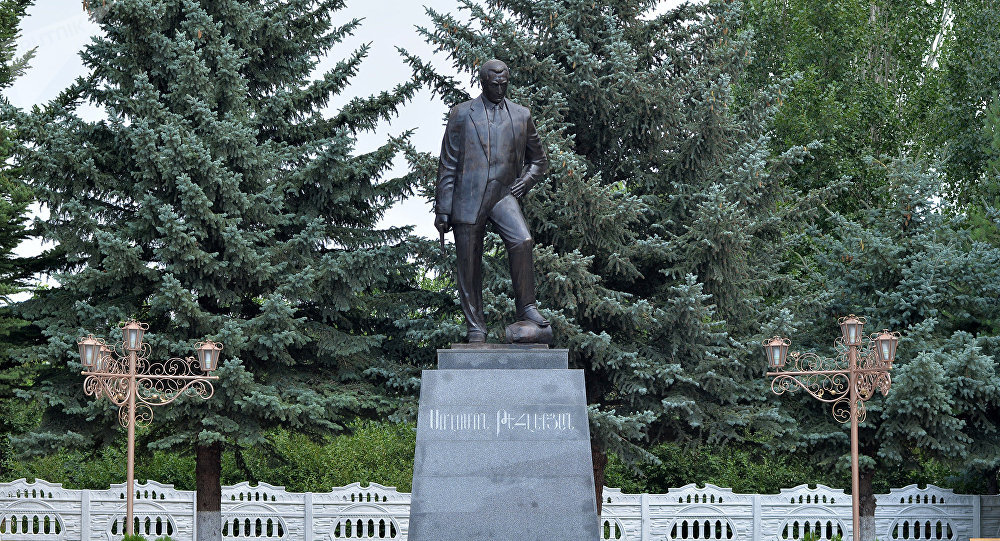 ARMENIA AND THE VENERATION OF TERRORISTS - II
ARMENIA AND THE VENERATION OF TERRORISTS - II
Mehmet Oğuzhan TULUN 16.09.2019 -
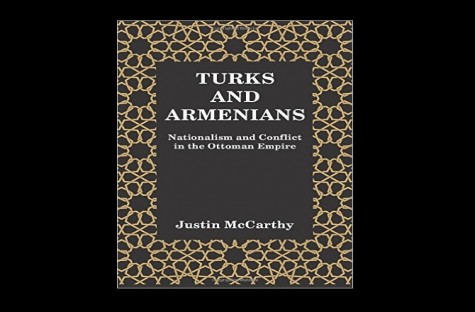 CHAPTER BY CHAPTER SYNOPSIS AND REVIEW OF TURKS AND ARMENIANS: NATIONALISM AND CONFLICT IN THE OTTOMAN EMPIRE BY JUSTIN MCCARTHY - 5
CHAPTER BY CHAPTER SYNOPSIS AND REVIEW OF TURKS AND ARMENIANS: NATIONALISM AND CONFLICT IN THE OTTOMAN EMPIRE BY JUSTIN MCCARTHY - 5
Mehmet Oğuzhan TULUN 22.10.2015 -
 SOME CRITICISMS REGARDING PROF. DR. ERIK-JAN ZÜRCHER’S CENTENNIAL STATEMENT
SOME CRITICISMS REGARDING PROF. DR. ERIK-JAN ZÜRCHER’S CENTENNIAL STATEMENT
Mehmet Oğuzhan TULUN 21.04.2015
-
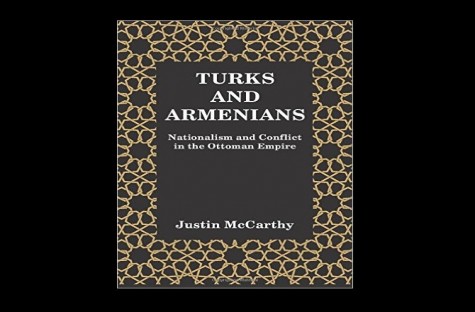 CHAPTER BY CHAPTER SYNOPSIS AND REVIEW OF TURKS AND ARMENIANS: NATIONALISM AND CONFLICT IN THE OTTOMAN EMPIRE BY JUSTIN MCCARTHY - 4
CHAPTER BY CHAPTER SYNOPSIS AND REVIEW OF TURKS AND ARMENIANS: NATIONALISM AND CONFLICT IN THE OTTOMAN EMPIRE BY JUSTIN MCCARTHY - 4
Ali Murat TAŞKENT 22.10.2015 -
 THE GRAIN INITIATIVE AND THE BLACK SEA SECURITY - I
THE GRAIN INITIATIVE AND THE BLACK SEA SECURITY - I
Turgut Kerem TUNCEL 03.08.2023 -
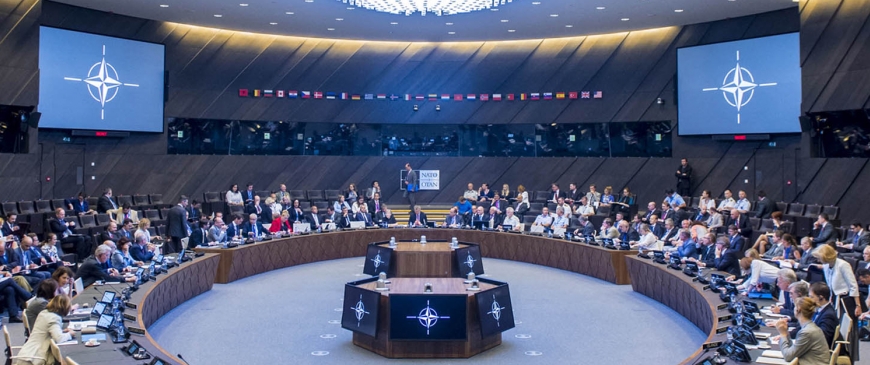 NATO AT SEVENTY
NATO AT SEVENTY
Aslan Yavuz ŞİR 03.04.2019 -
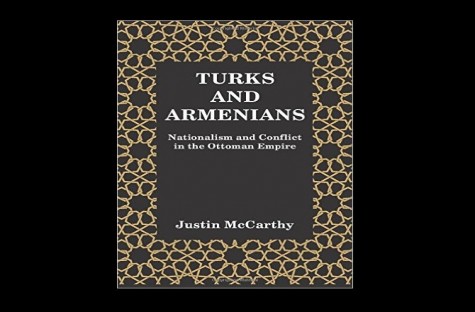 CHAPTER BY CHAPTER SYNOPSIS AND REVIEW OF TURKS AND ARMENIANS: NATIONALISM AND CONFLICT IN THE OTTOMAN EMPIRE BY JUSTIN MCCARTHY - 6
CHAPTER BY CHAPTER SYNOPSIS AND REVIEW OF TURKS AND ARMENIANS: NATIONALISM AND CONFLICT IN THE OTTOMAN EMPIRE BY JUSTIN MCCARTHY - 6
AVİM 22.10.2015 -
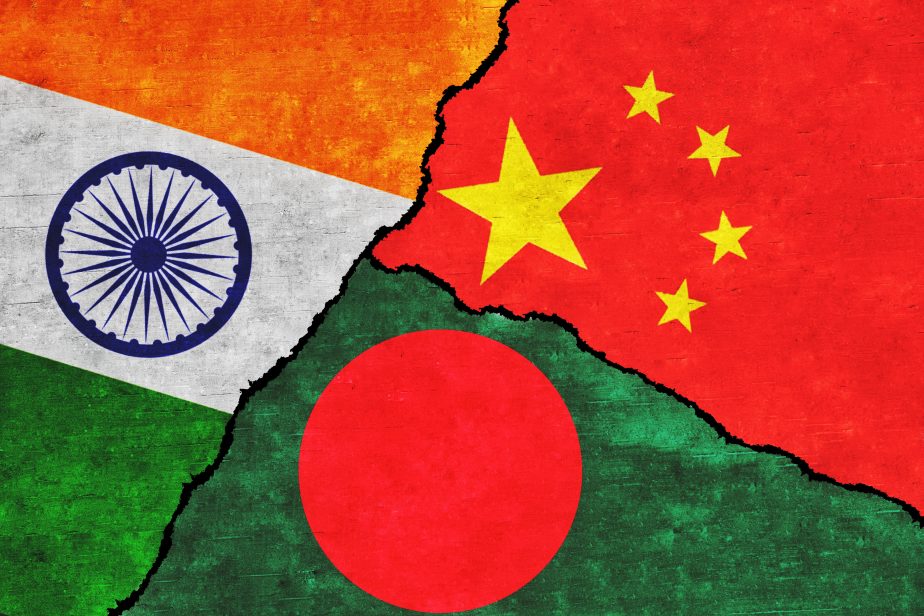 BANGLADESH: CHANGING INTERNATIONAL BALANCES IN SOUTH ASIA
BANGLADESH: CHANGING INTERNATIONAL BALANCES IN SOUTH ASIA
Seyda Nur OSMANLI 07.03.2025
-
25.01.2016
THE ARMENIAN QUESTION - BASIC KNOWLEDGE AND DOCUMENTATION -
12.06.2024
THE TRUTH WILL OUT -
27.03.2023
RADİKAL ERMENİ UNSURLARCA GERÇEKLEŞTİRİLEN MEZALİMLER VE VANDALİZM -
17.03.2023
PATRIOTISM PERVERTED -
23.02.2023
MEN ARE LIKE THAT -
03.02.2023
BAKÜ-TİFLİS-CEYHAN BORU HATTININ YAŞANAN TARİHİ -
16.12.2022
INTERNATIONAL SCHOLARS ON THE EVENTS OF 1915 -
07.12.2022
FAKE PHOTOS AND THE ARMENIAN PROPAGANDA -
07.12.2022
ERMENİ PROPAGANDASI VE SAHTE RESİMLER -
01.01.2022
A Letter From Japan - Strategically Mum: The Silence of the Armenians -
01.01.2022
Japonya'dan Bir Mektup - Stratejik Suskunluk: Ermenilerin Sessizliği -
03.06.2020
Anastas Mikoyan: Confessions of an Armenian Bolshevik -
08.04.2020
Sovyet Sonrası Ukrayna’da Devlet, Toplum ve Siyaset - Değişen Dinamikler, Dönüşen Kimlikler -
12.06.2018
Ermeni Sorunuyla İlgili İngiliz Belgeleri (1912-1923) - British Documents on Armenian Question (1912-1923) -
02.12.2016
Turkish-Russian Academics: A Historical Study on the Caucasus -
01.07.2016
Gürcistan'daki Müslüman Topluluklar: Azınlık Hakları, Kimlik, Siyaset -
10.03.2016
Armenian Diaspora: Diaspora, State and the Imagination of the Republic of Armenia -
24.01.2016
ERMENİ SORUNU - TEMEL BİLGİ VE BELGELER (2. BASKI)
-
AVİM Conference Hall 24.01.2023
CONFERENCE TITLED “HUNGARY’S PERSPECTIVES ON THE TURKIC WORLD"









